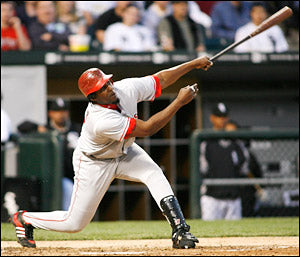Recently I wrote this guest blog post for John Creel and The Right Spot Newsletter. The Right Spot is a non profit organization
supporting Youth athletic and after school programs and offering opportunities to underpaid college coaches in North Carolina.
Be sure to Subscribe the the Newsletter HERE so that you don't miss any new issues!
Baseball can be a great way for children to learn important life skills, such as teamwork, discipline, and perseverance. However, about 70 percent of kids stop playing by age 13, says a poll from the National Alliance for Youth Sports. In this blog post, we will explore the three main reasons why kids quit baseball before they reach their teenage years.
Lack of interest or enjoyment:
Pressure or burnout:
The third reason why children quit baseball by the age of 13 is pressure or burnout. Children who feel overwhelmed by the pressure to perform or who are experiencing burnout from too much training or competition may become disinterested in the sport.
Parents and coaches can help children avoid burnout by creating a healthy and balanced schedule. It is important to make sure that children have time to rest and recover between practices and competitions.
Coaches and parents can also help children manage the pressure of competition by focusing on the process of improvement, rather than just the results. Encouraging children to set achievable goals and to focus on their own progress can help them stay motivated and engaged in the sport.
The allure of the next tournament and the fear of missing out can put alot of pressure on parents to “make the right decision” for their kid. Have confidence and peace of mind knowing that if your child’s tools and abilities are good enough they will continue to get opportunities to play the game. So focus your time, energy, and attention on making sure that happens.
In conclusion, there are many reasons why children quit sports by the age of 13. Lack of interest or enjoyment, poor performance or lack of progress, and pressure or burnout are the three main reasons why kids quit sports. Parents and coaches can help children stay engaged in sports by creating a positive and supportive environment, providing constructive feedback and support, and helping children manage the pressure of competition. By taking these steps, we can help children develop a love for sports that will stay with them for a lifetime.








